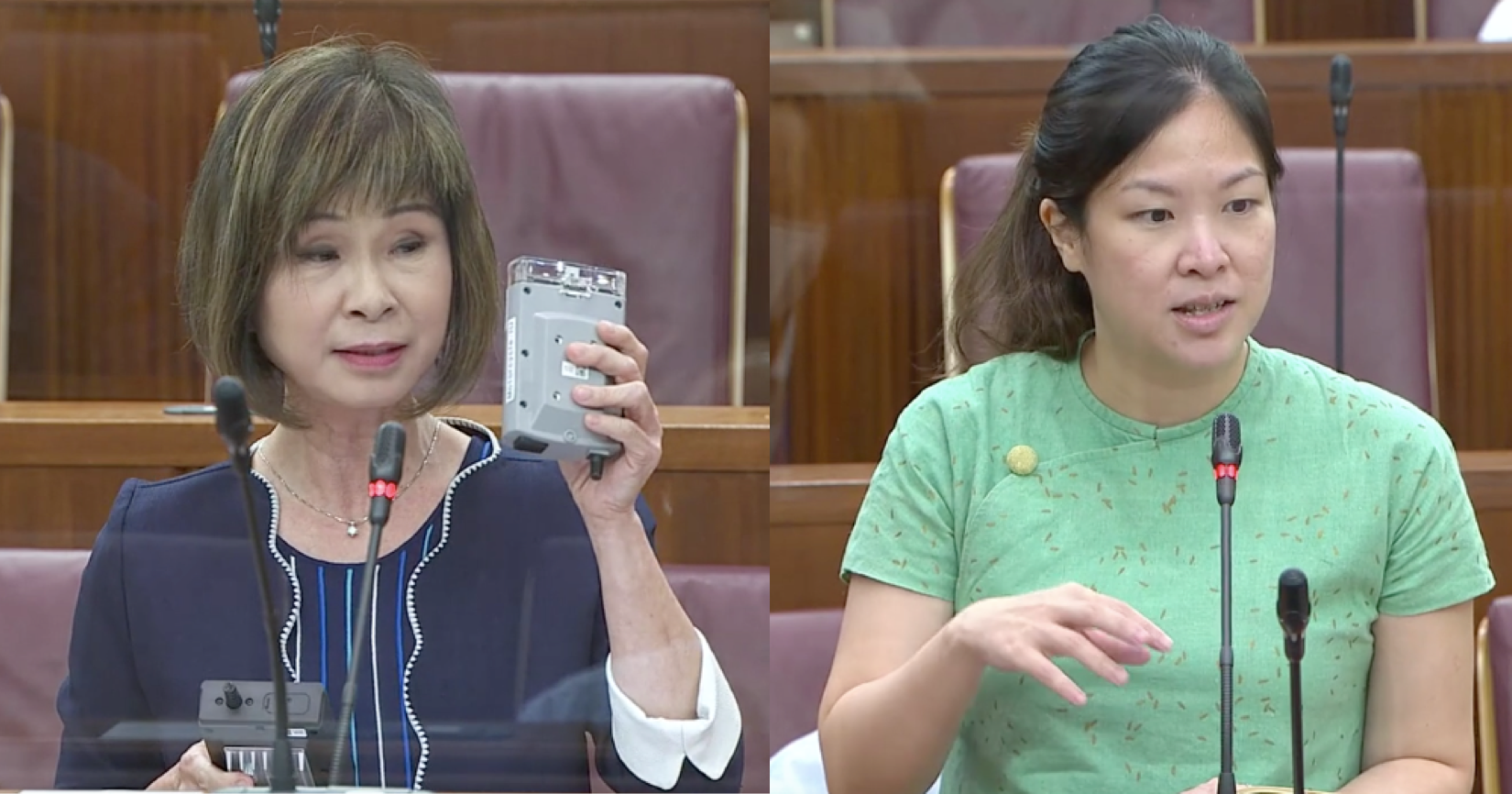The NexGen Electronic Road Pricing (ERP) unit is a "first of its kind project" and there are no similar systems anywhere else in the world.
The Land Transport Authority (LTA) could have specified in its international tender that a public consultation exercise was required, but this would incur additional costs and delays due to uncertainty.
Public consultation not included in tender due to practical constraints
Senior Minister of State for Transport Amy Khor explained this in reply to Member of Parliament He Ting Ru of the Workers' Party in Parliament on Oct. 5.
WP's He had actually filed a question about whether public consultation was included for the next sitting of Parliament, but Khor decided to field it in this sitting.
Citing "practical constraints", Khor said that LTA selected the best design based on performance and value for money, but once it was chosen, they were "contractually bound" to the tender.
Explained Khor:
"It could have specified that the winning tender had to conduct a major public consultation exercise, and make significant changes to the design to take in public feedback, but that will add significant uncertainty, which will delay the project and push up the tender prices."
He Ting Ru: Technology advances rapidly, shouldn't tenders allow for flexibility?
In a follow-up question, He pointed out that the tender was awarded in 2016, but technology is advancing so rapidly these days. She asked what were the tender specifications that resulted in LTA being contractually bound by the design agreed four years ago, rather than having the flexibility to make updates as necessary as technology improves.
WP's He also asked whether this could be considered for future such tenders.
In response, Khor said that all tenders had specifications and that contractors needed a certain amount of certainty.
She added, "I'm pretty sure and I understand that there is room for some consultation and in fact they have done this."
Khor said that the contract was awarded in early 2016, but the tender was put up in 2014, and emphasised again that this was a "first of its kind" project, so there was no reference point, and considering the various bids took some time.
The winning contractor also got NTU to conduct trials and perform experiments to assess safety issues. She added:
"Indeed we are mindful that we have to take into account technological improvements and advancements, which the contractors would have to do it, but understanding that this is actually a very, very significant and large project. I think you will also appreciate why, you know, the timeline is actually stretched."
NexGen criticism
The NexGen ERP unit, a three-piece, on-board affair, was announced in Sep. 2020 and quickly met with some criticism from the public.
Transport Minister Ong Ye Kung stepped in to answer some questions about the unit, mainly on why it wasn't one integrated device (because of heat) and concerns about blocking the windscreen.
Khor also explained in her Parliamentary reply that the "core charging transactions and ERP data" could be better protected in the device as opposed to a smartphone.
She also demonstrated that the three-piece device is only slightly bigger than the current device, and the display screen is still in discussions as to how to minimise the blockage of the windscreen.
Related story:
We deliver more stories to you on LinkedIn
Top image from CNA video.
If you like what you read, follow us on Facebook, Instagram, Twitter and Telegram to get the latest updates.
